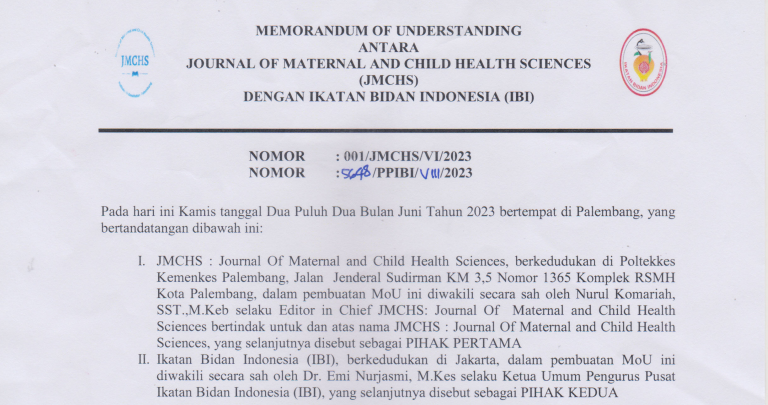Rose Aromatherapy Against Labor Pain Time I
Abstract
Background: Labor pain is a physiological process caused by uterine contractions that cause cervical dilation and thinning and uterine ischemia due to myometrial artery contraction. Physiological events during delivery can sometimes cause trauma to the mother because the pain she experiences and anxiety during delivery can have an impact on the mother and the fetus if not treated immediately. One of the non-pharmacological ways to reduce labor pain is rose aromatherapy. Aromatherapy is a therapeutic therapy that involves the use of fragrances derived from essential oils. The linalol content in roses can stimulate the secretion of the hormone enkefalin which can stabilize the nervous system so that it can have a calming effect on anyone who breathes it.Methods: This study was to determine the effect of rose aromatherapy on labor pain stage I. This study is a quantitative study using the One Group Pre-Test-Posttest design using experimental methods. The sample in this study were mothers who had stage I labor pain with a sample size of 15 respondents. This sample was taken using the total sampling method and the measuring instrument used was the Numeric Rating Scale (NRS).Results: The results showed that 12 respondents (80%) experienced severe pain before being given rose aromatherapy, while 11 respondents (73.3%) experienced moderate pain after being given rose aromatherapy. The statistical test used in this study was the Wilcoxon test and obtained a significant value of p value = 0.001 (p> 0.05), meaning that there was a significant difference in the first stage labor pain before and after being given rose aromatherapy.
Conclusion: There is an effect of rose aromatherapy on first stage labor pain at Sekayu Regional Hospital in 2020.
Authors who publish with this journal agree to the following terms:
- Authors retain copyright and grant the journal right of first publication with the work simultaneously licensed under a Creative Commons Attribution License that allows others to share the work with an acknowledgement of the work's authorship and initial publication in this journal.
- Authors are able to enter into separate, additional contractual arrangements for the non-exclusive distribution of the journal's published version of the work (e.g., post it to an institutional repository or publish it in a book), with an acknowledgement of its initial publication in this journal.
- Authors are permitted and encouraged to post their work online (e.g., in institutional repositories or on their website) prior to and during the submission process, as it can lead to productive exchanges, as well as earlier and greater citation of published work












